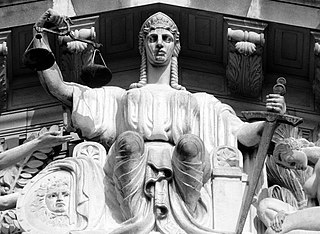Ruling
At the trial level, Judge Corrine Sparks acquitted the youth, for the reason that the only evidence was the testimony of the officer and the youth, and both had reasonable credibility. In the end of her judgement, she added,
"I believe that probably the situation in this particular case is the case of a young police officer who overreacted. And I do accept the evidence of Mr. S. that he was told to shut up or he would be under arrest. That seems to be in keeping with the prevalent attitude of the day."
The last phrase became the focus of all the appeals to follow. Judgements needs to be based solely on the evidence while the phrase suggests some preconceived notions.
It was determined at the trial and appeal level that there was an "apprehension of bias" on the part of Sparks.
However, the Supreme Court of Canada allowed the appeal and restored Sparks' acquittal of RDS. The Court noted that
A judge who happens to be black is no more likely to be biased in dealing with black litigants, than a white judge is likely to be biased in favour of white litigants. All judges of every race, colour, religion, or national background are entitled to the same presumption of judicial integrity and the same high threshold for a finding of bias. (para. 115)
A high standard must be met before a finding of reasonable apprehension of bias can be made. Troubling as Judge Sparks’ remarks may be, the Crown has not satisfied its onus to provide the cogent evidence needed to impugn the impartiality of Judge Sparks. Although her comments, viewed in isolation, were unfortunate and unnecessary, a reasonable, informed person, aware of all the circumstances, would not conclude that they gave rise to a reasonable apprehension of bias. (para. 158)

In English law, natural justice is technical terminology for the rule against bias and the right to a fair hearing. While the term natural justice is often retained as a general concept, it has largely been replaced and extended by the general "duty to act fairly".
Terry v. Ohio, 392 U.S. 1 (1968), was a landmark U.S. Supreme Court decision in which the court ruled that it is constitutional for American police to "stop and frisk" a person they reasonably suspect to be armed and involved in a crime. Specifically, the decision held that a police officer does not violate the Fourth Amendment to the U.S. Constitution's prohibition on unreasonable searches and seizures when questioning someone even though the officer lacks probable cause to arrest the person, so long as the police officer has a reasonable suspicion that the person has committed, is committing, or is about to commit a crime. The court also ruled that the police officer may perform a quick surface search of the person's outer clothing for weapons if they have reasonable suspicion that the person stopped is "armed and presently dangerous." This reasonable suspicion must be based on "specific and articulable facts," and not merely upon an officer's hunch.

R v Mann is a 2004 decision of the Supreme Court of Canada.

The judicial system of Israel consists of secular courts and religious courts. The law courts constitute a separate and independent unit of Israel's Ministry of Justice. The system is headed by the President of the Supreme Court and the Minister of Justice.

The criminal law of Canada is under the exclusive legislative jurisdiction of the Parliament of Canada. The power to enact criminal law is derived from section 91(27) of the Constitution Act, 1867. Most criminal laws have been codified in the Criminal Code, as well as the Controlled Drugs and Substances Act, Youth Criminal Justice Act and several other peripheral statutes.

Baker v Canada (Minister of Citizenship and Immigration), [1999] 2 SCR 817 is a leading Canadian administrative law decision of the Supreme Court of Canada. The Court provided guidance on the standard of judicial review of administrative decisions. The issue was what standard of procedural fairness should be applied when considering the judicial review of the waiver of the requirement that applications for permanent residence be filed from abroad. The case also clarified the need for written reasons in some administrative decisions.

Canadian administrative law is the body of law "that applies to all administrative decisions, whether issued by front-line officials, ministers, economic regulatory agencies, or administrative tribunals, with interpretations of law and exercises of discretion subject to the same. .. rules." Administrative law is concerned primarily with ensuring that administrative decision-makers remain within the boundaries of their authority and observe procedural fairness.
Graham v. Connor, 490 U.S. 386 (1989), was a United States Supreme Court case in which the Court determined that an objective reasonableness standard should apply to a civilian's claim that law enforcement officials used excessive force in the course of making an arrest, investigatory stop, or other "seizure" of his or her person.
In Canadian law, a reasonable apprehension of bias is a legal standard for disqualifying judges and administrative decision-makers for bias. Bias of the decision-maker can be real or merely perceived.
The Canadian Forces Drug Control Program is a series of regulations established in 1992 to prevent drug use among members of the Canadian Forces (CF), under the broad regulation-making auspices of section 12 of the National Defence Act (NDA). It prohibits CF members from involvement with most drugs, except alcohol and tobacco, purportedly to maintain discipline within the CF, ensure the safety, reliability or health of CF members. Chapter 20 of Queen's Regulations and Orders contains several schemes for drug-testing such as safety-sensitive testing, blind testing, and testing for suspicion under the article for "testing for cause." The regulation enforces administrative and disciplinary action against those who transgress its requirements.

Margaret Anne McMurdo is the former president of the Queensland Court of Appeal. Appointed on 30 July 1998, she was the first female president of an appellate court in Australia. She resigned effective 24 March 2017 after more than 18 years as a justice of the Court of Appeal.
Caperton v. A. T. Massey Coal Co., 556 U.S. 868 (2009), is a case in which the United States Supreme Court held that the Due Process Clause of the Fourteenth Amendment requires judges to recuse themselves not only when actual bias has been demonstrated or when the judge has an economic interest in the outcome of the case but also when "extreme facts" create a "probability of bias."
Bail in Canada refers to the release of a person charged with a criminal offence prior to being tried in court or sentenced. The Canadian Bill of Rights and the Canadian Charter of Rights and Freedoms guarantee the right not to be denied reasonable bail without just cause. That right is implemented by the Criminal Code, which provides several ways for a person to be released prior to a court appearance. A person may be released by a peace officer or by the courts. A release by the courts is officially known as a judicial interim release. There are also a number of ways to compel a person's appearance in court without the need for an arrest and release.

R v Kang-Brown, [2008] 1 S.C.R. 456, 2008 SCC 18, is a constitutional decision by the Supreme Court of Canada on the limits of police powers for search and seizure. The Court found that police do not have the right to perform a sniffer-dog search of public spaces when such search is not specifically authorized by statute. In this case, a suspect's section 8 rights under the Canadian Charter of Rights and Freedoms ("Charter") were violated when a police officer stopped him at a bus station and sniffer-dog searched his bag finding drugs in his possession.

Bias is one of the grounds of judicial review in Singapore administrative law which a person can rely upon to challenge the judgment of a court or tribunal, or a public authority's action or decision. There are three forms of bias, namely, actual, imputed and apparent bias.
Following the common law system introduced into Hong Kong when it became a Crown colony, Hong Kong's criminal procedural law and the underlying principles are very similar to the one in the UK. Like other common law jurisdictions, Hong Kong follows the principle of presumption of innocence. This principle penetrates the whole system of Hong Kong's criminal procedure and criminal law. Viscount Sankey once described this principle as a 'golden thread'. Therefore, knowing this principle is vital for understanding the criminal procedures practised in Hong Kong.

Procedural impropriety in Singapore administrative law is one of the three broad categories of judicial review, the other two being illegality and irrationality. A public authority commits procedural impropriety if it fails to properly observe either statutory procedural requirements, or common law rules of natural justice and fairness.

R v Fearon, 2014 SCC 77 is a leading section 8 Canadian constitutional law case, concerning the constitutionality of warrantless law enforcement searches of the contents of a cell phone incident to arrest.

Bula Ltd v Tara Mines Ltd [2000] IESC 15; [2000] 4 IR 412 is a reported Irish Supreme Court case in which the court considered the test for objective bias in Ireland. During this case the Supreme Court considered:
- whether Supreme Court has jurisdiction to set aside its own previous order;
- whether an appellant must show real likelihood of bias or whether reasonable apprehension of bias suffices; and
- whether a prior relationship of legal advisor and client would disqualify a judge.
Corrine Sparks is a Canadian judge. She was the first Black Canadian woman to become a judge in Canada, and the first black judge in the province of Nova Scotia. Her decision in the case R v S (RD), which was controversially overturned on appeal, was later upheld by the Supreme Court of Canada in a leading decision on reasonable apprehension of bias.








